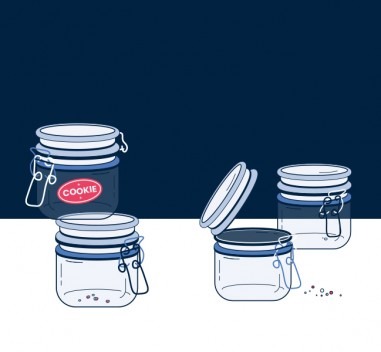Just as a sweeping storm cloud looms overhead, the warnings of an economic crisis lay heavily on the shoulders of individuals and businesses alike. The word “recession” can be heard echoing around the globe, tantalizing every publisher’s budget team, and posing the question, where do we cut costs first?
While any news of an economic downturn is rightfully more than frightening to the ear, there is always a silver lining – in this case, the silver lining can favor publishers. A financial crisis may lead to finance publishers acquiring higher traffic on their sites, developing increased user content consumption rates, and seeing higher levels of engagement.
From One Crisis to Another
As the early onset of the COVID-19 pandemic illustrated, publishers’ audience volume increases when users need content. Compared to pre-COVID statistics, traffic saw an increase of 67%. Not only were the number of individual users significantly higher, but engagement rates saw dramatic growth as well.
A pandemic or even a war are not the only instances when more and more users find their eyes glued to their computer screens. Take politics, for example, news sites see record-breaking traffic numbers during the final countdown of an election, some even seeing increases of almost 15%. While elections are not as scary as life-threatening illnesses or conflict (although recent years may be proving otherwise), users still crave the constant updates and knowledge that publisher sites provide.
Fulfilling the Need
Typically, advertising budgets are the first to be cut during a financially trying time. However, studies show that companies that actually increased their marketing budgets, as opposed to decreasing them, were the companies that ended up thriving, instead of merely surviving economic distress. The reasons behind this phenomenon are not hard to understand. With fewer advertisers running their campaigns, and higher user traffic, each campaign becomes louder, with a greater share of a smaller market, and audience reach is exponentially higher. All of this is achieved through the lack of demand lowering CPM, granting advertisers lower costs.
Despite these truths, advertisers are still hesitant about being associated with any content deemed “negative.” And yes, this even applies to the content that users are spending most of their time engaging with. For example, advertisers frequently avoid placing their campaigns on content related to the term “recession,” regardless of how much reach they would gain by doing so.
Business and finance publishers should be wary of succumbing to the despair that comes with times of crisis. First and foremost, users want to be in the loop. Both returning users and new audiences will be more inclined to search for content that satisfies their need to know what is going on in the world and how they will be affected.
Frequently updated news channels, trend analyses, and skill-building video content will become a publisher's greatest asset when users look to advance their knowledge on complex issues, such as a recession. Doom and gloom won’t give users the answers they need, but providing them with these solutions will.
The Bottom (Silver) Line
As publishers, the key to maximizing the response to a difficult situation is taking an approach that is sensitive, accurate, and careful. In order for publishers to successfully come out on top in challenging times, it’s important for them to consider not only generating more video content but specifically content that contains actionable information and is relevant to their users. Hopefully, in doing so, publishers will simultaneously benefit their users and remove the negative stigma attached to the topic that advertisers tend to steer away from – killing two birds with one stone. As long as life keeps throwing us lemons, users will look to reliable publishers to give them the tools to make lemonade.





